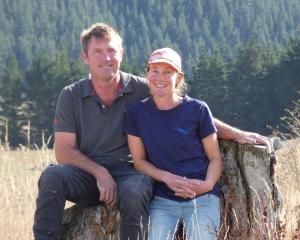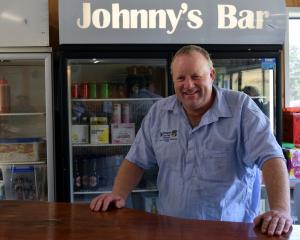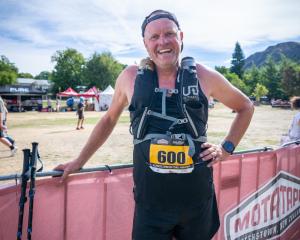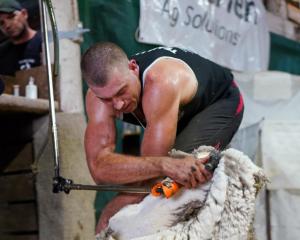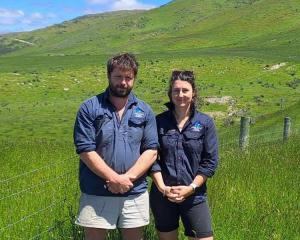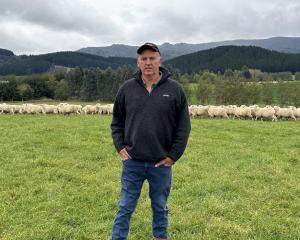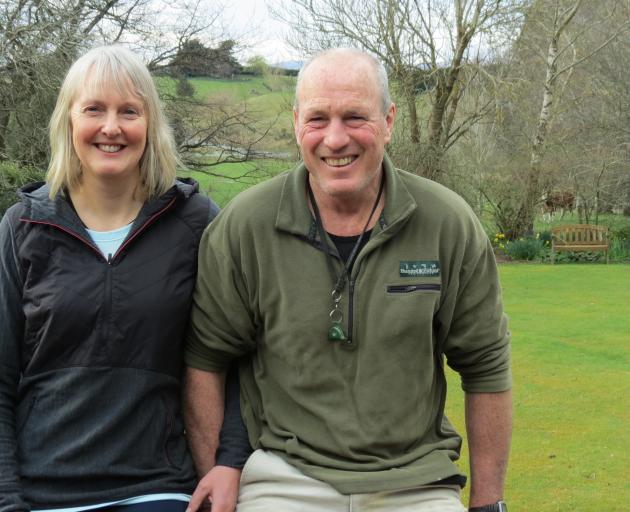
Mr Keown, now 58, and wife Kath own the Lone Pine Simmental stud at Raes Junction. He is a keen dog triallist, as well as president of the Otago Sheep Dog Trial Centre.
At 43, he had the dubious distinction of being one of the youngest men to be diagnosed with prostate cancer that his doctor had seen, and for a short while achieved global fame among the doctor's colleagues overseas.
At the time, the couple's three daughters, Stella, Harriet and Millie, were 4, 6 and 8.
''I didn't have any symptoms. My father had a minor prostate issue, and his urologist thought it would be good for me to get checked out as well, so I did.
''They found a lump, I went for a biopsy and they discovered it was an aggressive type of prostate cancer.
''I remember sitting in my car and thinking 'why me'.''
Mrs Keown said she was shocked at her husband's diagnosis.
''But I knew we would be able to meet the challenge,'' she said.
''It was quite a big deal, making the decision about which treatment [he would have].''
The doctor offered two types of treatment: radiation therapy or a prostatectomy. ''Both were quite invasive and could be damaging, and I thought [both were] going to be quite horrific for someone of my age,'' he said.
''I had a visit from my uncle who was dying from prostate cancer, and he suggested brachytherapy as an alternative to conventional treatment.
''Before he suggested it, I had never heard of it.''
After thorough research, visits to specialists and careful consideration of options, they decided that brachytherapy was the best option for their circumstances.
Brachytherapy is the injection of up to 120 radioactive seeds directly into the site of the cancer. They radiate the tumour from within.
''It was a direct nuke.''
The day before the treatment they flew to Auckland, which was at that stage the only place in New Zealand where it was offered.
''I also forgot my wallet, as there was so much going on in my mind,'' he said.
The private treatment cost them $23,000.
He said there were few side effects, no sickness and a much shorter recovery time.
Mr Keown was not supposed to work for a week after the treatment but they had a bull sale two days after they arrived back.
''I remember that being quite stressful,'' she said.
''He was told he couldn't lift anything, but he went back to work the next day.''
Friends and family had been supportive and the Cancer Society also helped them out with a small donation for the children, Mr Keown said.
''As a precaution, Kath chose to sleep in the living room for six weeks and I could not nurse my daughter Stella, who was 4 at the time, because of the radioactivity,'' he said.
He has since had regular PSA blood tests. The cancer has not returned.
''Men should get checked as soon as they hit 40,'' he said.
''If you leave it too late, the treatment might not be as effective.
''I want to spread the word as much as I can.''
His doctor used him as a case study with his colleagues overseas, as he had been so young.
''I went global,'' he said.




